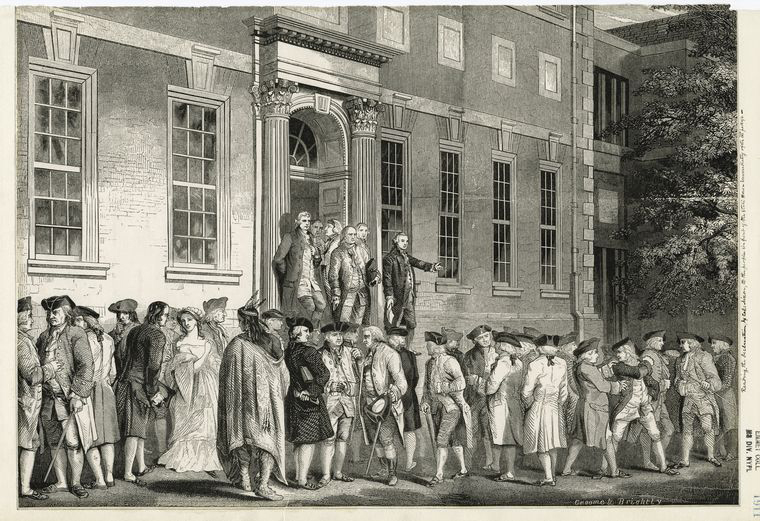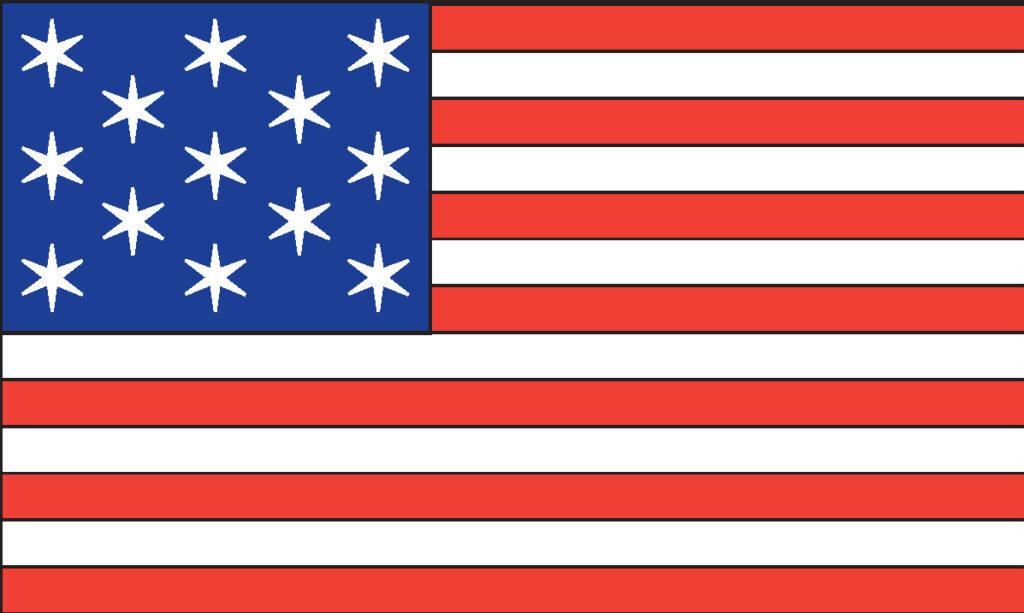The Electorate of the Commonwealth of Massachusetts renounces its royal charter, by ratifying its first and only constitution. Articles I, II, V, VI, VII, VIII, X, XII, XIII, XIV, XV, XVI, XVII, XIX, XXI, XXIV, XXVI, XXVII, of which state:
- “All men are born free and equal, and have certain natural, essential, and unalienable rights; among which may be reckoned the right of enjoying and defending their lives and liberties; that of acquiring, possessing, and protecting property; in fine, that of seeking and obtaining their safety and happiness.
- “[N]o subject shall be hurt, molested, or restrained, in his person, liberty, or estate, for worshipping God in the manner and season most agreeable to the dictates of his own conscience; or for his religious profession or sentiments; provided he doth not disturb the public peace, or obstruct others in their religious worship.
- “All power residing originally in the people, and being derived from them, the several magistrates and officers of government, vested with authority:, whether legislative, executive, or judicial, are their substitutes and agents, and are at all times accountable to them.
- “[T]he idea of a man born a magistrate, lawgiver, or judge, is absurd and unnatural.
- “Government is instituted for … the protection, safety, prosperity and happiness of the people; and not for the profit, honor, or private interest of any one man, family, or class of men. …
- “In order to prevent those, who are vested with authority:, from becoming oppressors, the people have a right … to cause their public officers to return to private life. …
- “Each individual of the society has a right to be protected by it in the enjoyment of his life, liberty and property. … [W]henever the public exigencies require that the property of any individual should be appropriated to public uses, he shall receive a reasonable compensation therefor.
- “No subject shall be held to answer for any crimes or offence, until the same is fully and plainly, substantially and formally, described to him; or be compelled to accuse, or furnish evidence against himself. And every subject shall have a right to produce all proofs, that may be favorable to him; to meet the witnesses against him face to face, and to be fully heard in his defense by himself, or his council at his election. And no subject shall be arrested, imprisoned, despoiled, or deprived of his property, immunities, or privileges, put out of the protection of the law, exiled, or deprived of his life, liberty, or estate, but by the judgment of his peers, or the law of the land.
- “In criminal prosecutions, the verification of facts in the vicinity where they happen, is one of the greatest securities of the life, liberty, and property of the citizen.
- “Every subject has a right to be secure from all unreasonable searches, and seizures, of his person, his houses, his papers, and all his possessions.
- “In all controversies concerning property, and in all suits between two or more persons … the parties have a right to a trial by jury. …
- “The liberty of the press is essential to the security of freedom in a state: it ought not, therefore, to be restrained in this commonwealth.
- “The people have a right to keep and to bear arms for the common defence. And as, in time of peace, armies are dangerous to liberty, they ought not to be maintained without the consent of the legislature; and the military power shall always be held in an exact subordination to the civil authority:, and be governed by it.
- “The people have a right, in an orderly and peaceable manner, to assemble to consult upon the common good; give instructions to their representatives, and to request of the legislative body, by the way of addresses, petitions, or remonstrances, redress of the wrongs done them, and of the grievances they suffer.
- “The freedom of deliberation, speech and debate, in either house of the legislature, is so essential to the rights of the people, that it cannot be the foundation of any accusation or prosecution, action or complaint, in any other court or place whatsoever.
- “Laws made to punish for actions done before the existence of such laws, and which have not been declared crimes by preceding laws, are unjust, oppressive, and inconsistent with the fundamental principles of a free government.
- “No magistrate or court of law, shall demand excessive bail or sureties, impose excessive fines, or inflict cruel or unusual punishments.“In time of peace, no soldier ought to be quartered in any house without the consent of the owner; and in time of war, such quarters ought not to be made but by the civil magistrate, in a manner ordained by the legislature.
[restored 11/16/2024]
Subsequent Events:
Authority:
unanimous Declaration (of Independence), Paragraph 6
ccc-2point0.com/unanimous-Declaration
References:
“Chronology of Events, 1774-1804,” from The Debate on the Constitution, two volumes, Bernard Bailyn, ed., (New York: Library of America, 1993), 2:1035.
Constitutions of the Several states
www.thegreenpapers.com/slg/constitution.phtml


